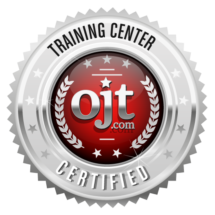
INDUSTRY-LEADING LIVE
INSTRUCTOR-LED TRAINING
World Class Training Content, Delivered On-Demand
BRIDGING THE GAP
between career seekers
& employers
from COAST-TO-COAST

World Class Training Content, Delivered On-Demand
between career seekers
& employers
from COAST-TO-COAST
Computer Systems Analyst
QUALIFICATIONS
Low: An Associate Degree with/or Professional Courses and Allied Certification Courses with credentials of the Institute for Certification of Computing Professionals (ICCP) in Management Information Systems (MIS), etc.;
On the Job Training (OJT), Apprenticeships, IT Workforce Job Training or Experience.
Medium: Bachelor’s Degree in Computer Science or Software Engineering with majors in Math including calculus, linear algebra, geometry, differential equations, etc.; ICCP or MIS certifications will be a big plus.
High: Post Graduation in Science, Technology, Engineering or Mathematics (STEM) or a Master’s Degree in Computer Science or Software Engineering. ICCP/ MIS certifications or an MBA, especially in MIS or Finance will be an added advantage.
ANNUAL AVERAGE SALARY
(Credits: www.payscale.com)
| Entry-level (0-12 months) | $ 56,121 |
| Early career (1-4 years) | $ 59,817 |
| Mid-career (5-9 years) | $ 71,158 |
| Experienced (10+ years) | $ 79,668 |
PROJECTED GROWTH
(Credits: www.bls.gov)
Information Security Analysts an excellent career pathway, in which employment is projected to grow at a decent 7 percent from 2019 to 2029.
SKILLS/ TRAITS NEEDED
Besides technical qualifications, the Computer Systems Analyst needs to have strong structured analytical, logical and critical thinking and problem-solving skills, written and verbal communication, time management, prioritization & soft-skills, and must be constantly updated with the latest IT and technology trends, and self-organized and proactive to address new IT initiatives.
WORK FUNCTIONS
Computer Systems Analysts help organizations use computer technology and systems effectively and efficiently. They identify organizational IT (hardware and software) gaps, gather user requirements, research and evaluate the feasibility, analyze, compare and evaluate the cost-benefits of computer systems and networks and suggest the best and cost-effective hardware or software solutions, converting them into technical specifications. They also design or architect IT solutions and oversee/ coordinate implementation and testing, besides conducting user-training. They work closely with Software development and testing teams to create effective and efficient IT solutions.
Related Careers